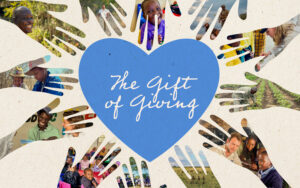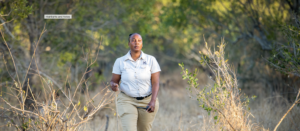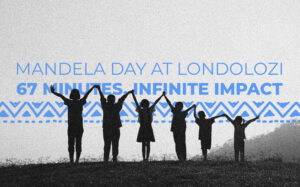Kate Groch is the Founder and CEO of Londolozi’s award-winning nonprofit partner organisation, Good Work Foundation. Originally a teacher, for over 20 years Kate has been at the forefront of changing education, creating a best-practice model for better access to education in rural Africa. Her TED talk, from Chance to Choice, as well as her own personal journey, have inspired thousands of people to visit her team’s pioneering Digital Learning Campuses in some of South Africa’s most remote locations. https://www.youtube.com/embed/PjkHEIcGiWI
Never one to mince her words, below is part one of a two-part series as Kate looks back on the challenges of leading an NGO through global crisis. (And of course, if you are drawn to contribute to the GWF mission, you can find out how here).
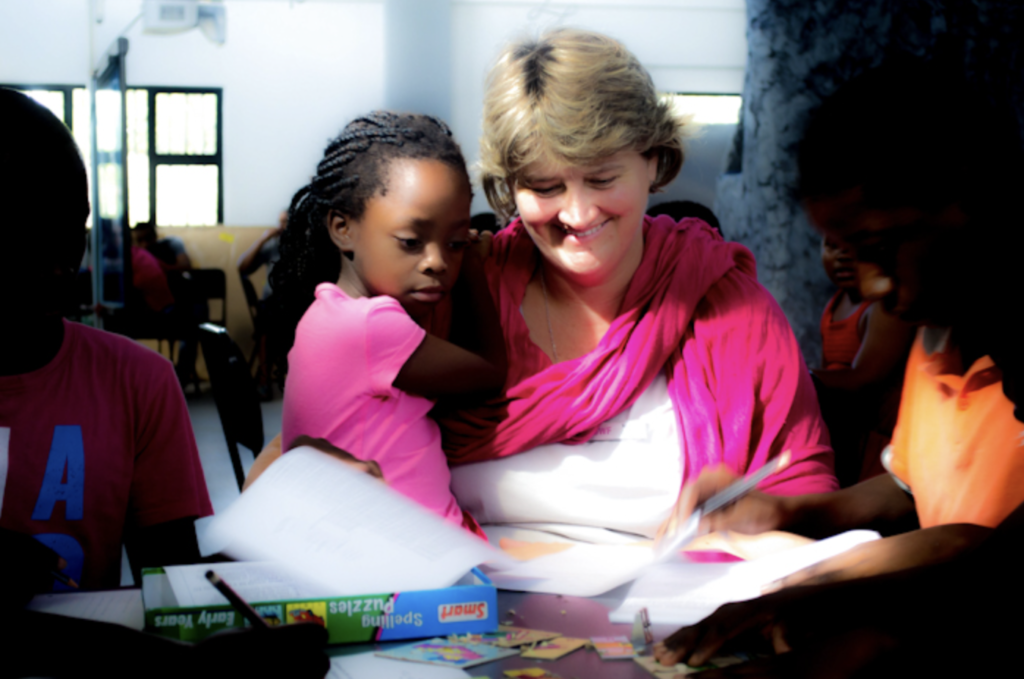
1.Rewind back to March 2020, What were you thinking and feeling?
I am not sure we knew what to think! This was something so unprecedented. I was in the USA with Maya on a fundraising trip when the pandemic started to pick up steam and had to return quickly before borders were closed, so Maya and I had already been in a two-week isolation when South Africa locked down. The first step was to make sure our team was safe and at home. Once they were all at home we had to come up with a plan to stay connected. GWF is a family and so we connect with each other all the time … for us all to be separated took some getting used to. With the tourism industry being hardest hit we needed to immediately rework budgets and begin fundraising for what we knew would be a large gap for the year. Most of all I was feeling uncertain as to how this would all play out and I was concerned for the team and the children and students who are part of GWF. Education in South Africa already has a poor track record so, as a teacher, mother and CEO of an education nonprofit, I thought about the millions of children who were going to be sitting at home.
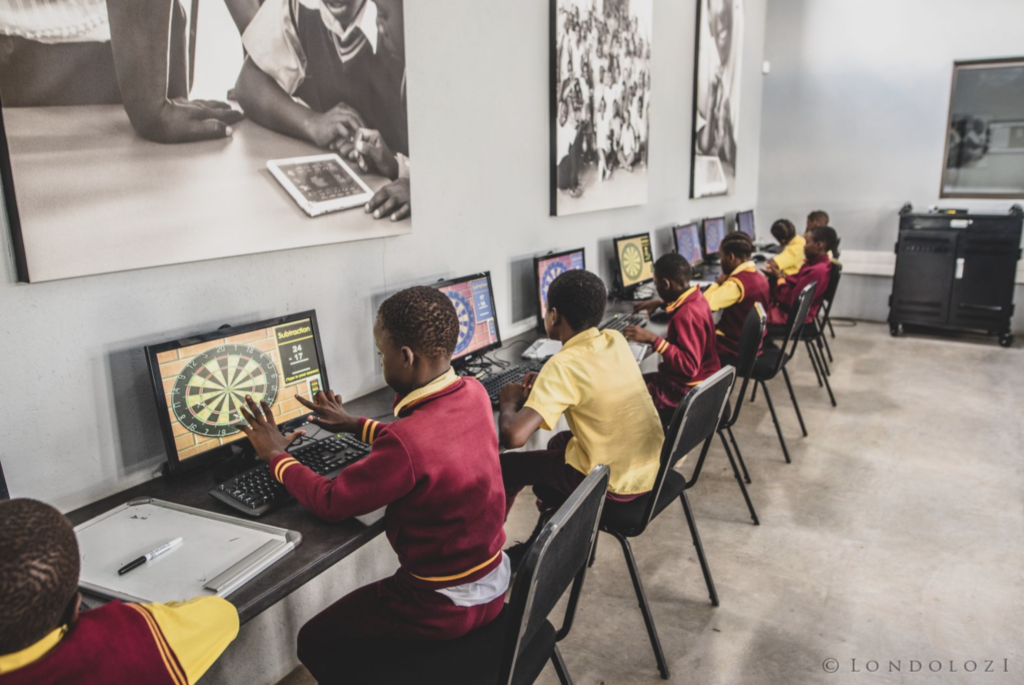
2.What were some of your biggest fears?
How would we manage to implement the plan we had? The young people we work with were disconnected and I was concerned we wouldn’t be able to firstly deliver the programmes to them. Secondly, were we going to be able to fulfil our promises to our donors? And of course we wondered about how this was going to affect our fundraising initiatives.
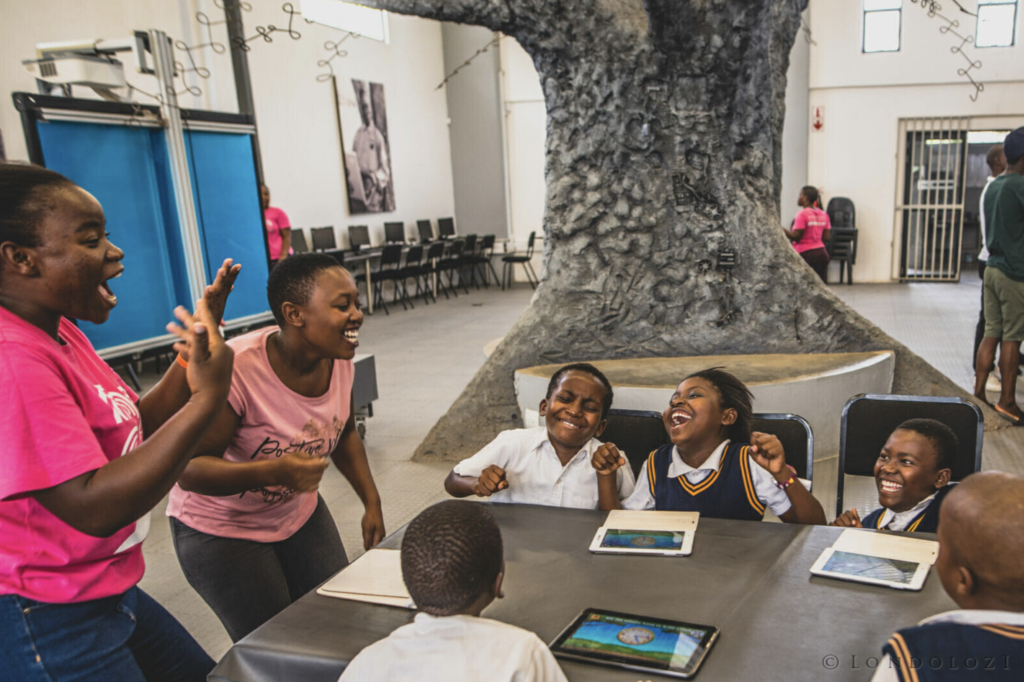
3.At that very scary and uncertain time, what steps did you take to look after your team’s mental health and sense of stability?
We immediately made a GWF family Whatsapp group. We felt that we needed to meet and to meet regularly. We also, as an Exco, looked at what support we could offer through our network to keep everyone feeling supported and safe. So all online, we did yoga, meditation, medical updates, life-coaching, GWF family Zoom meetings and we increased the cadence of the meetings we had. Being in regular contact created a certainty in an uncertain time. We also made the decision to work as hard as we could and do whatever we had to, to make sure that the GWF programmes and team came through the crisis intact and all together.
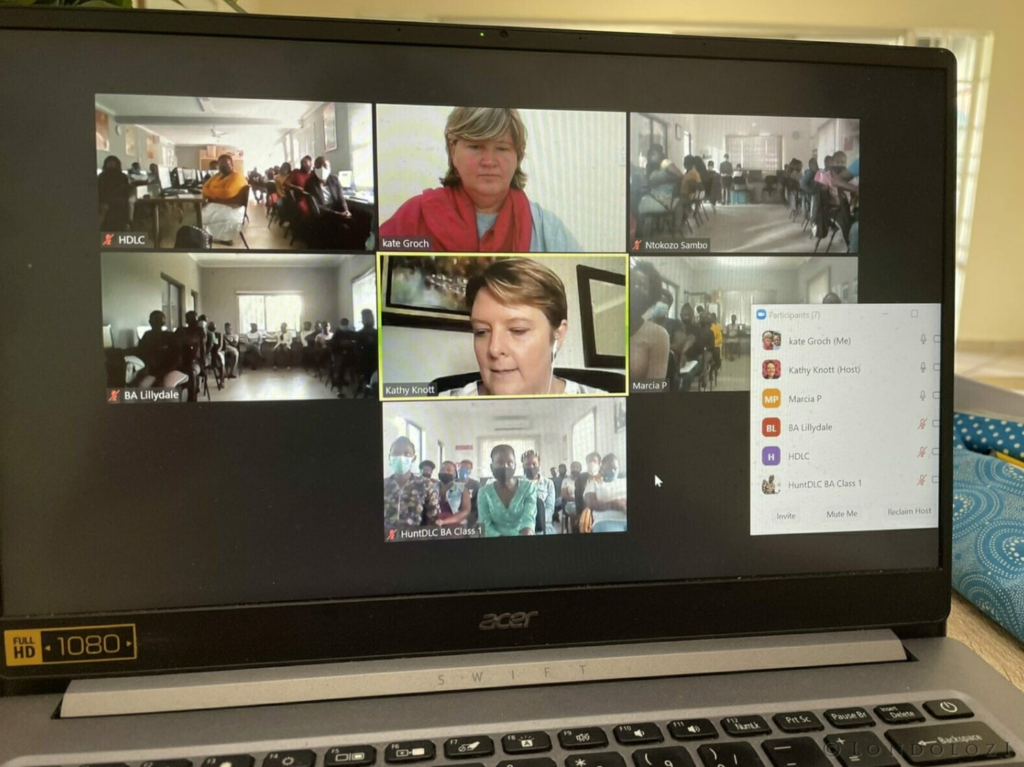
4.On a practical level, what were the most important steps that you and your team took as a precaution as the world was shutting down?
Giving staff correct medical information was so important. In uncertain time stories can be varied. Tapping into our network and hearing from Dr. Rav James and also working on our pandemic infographic short videos was an important step to keep people safe.
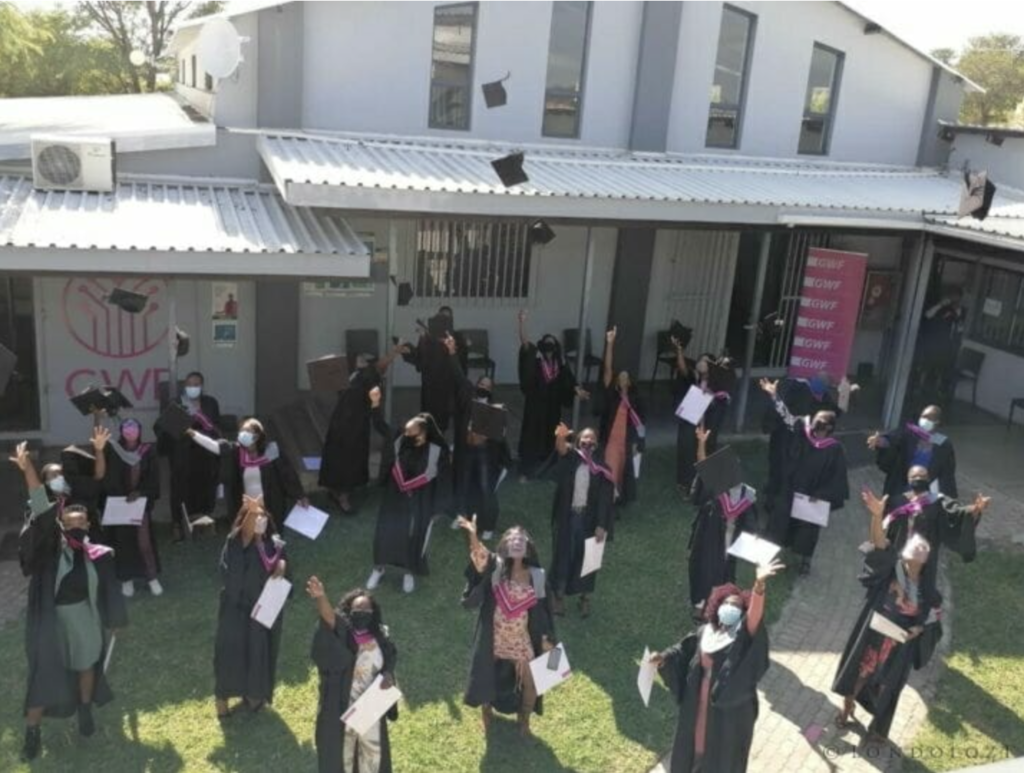
5.At that stage, was there any advice that you were given that you are glad you thought twice about?
I was advised early to shut down and retrench staff quickly, to cut programmes and people. I am glad that I absolutely did not listen. I am pleased that this team decided rather – as always – to look at it differently and come up with a different way of making a plan.
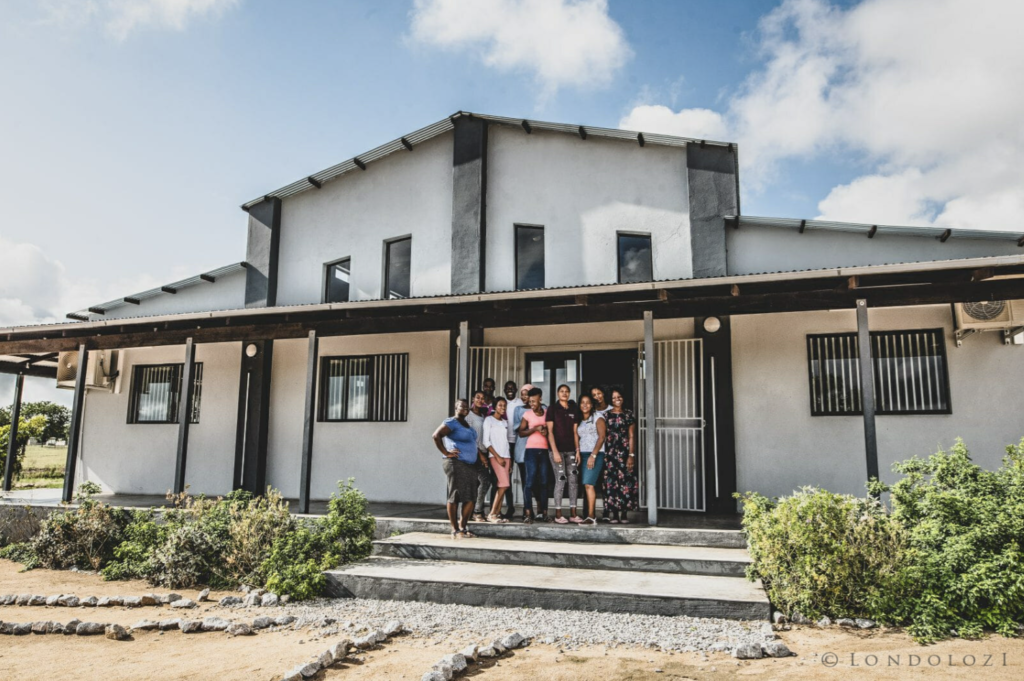
6.In hindsight, was there anything that you had been doing in the years building up to 2020 that prepared you and your organisation for this this moment?
I think the disadvantage of “NGO” is the constant fundraising. The advantage is resilience and spiritedness. If you’re to survive you have to make $1 do $10 worth of work and you have to look at things differently, seeing challenges as opportunities. I am thankful that – even though we are rural – our staff are all digitally trained, and I am thankful that over many years we have created a wonderful and varied network of supporters and partners.
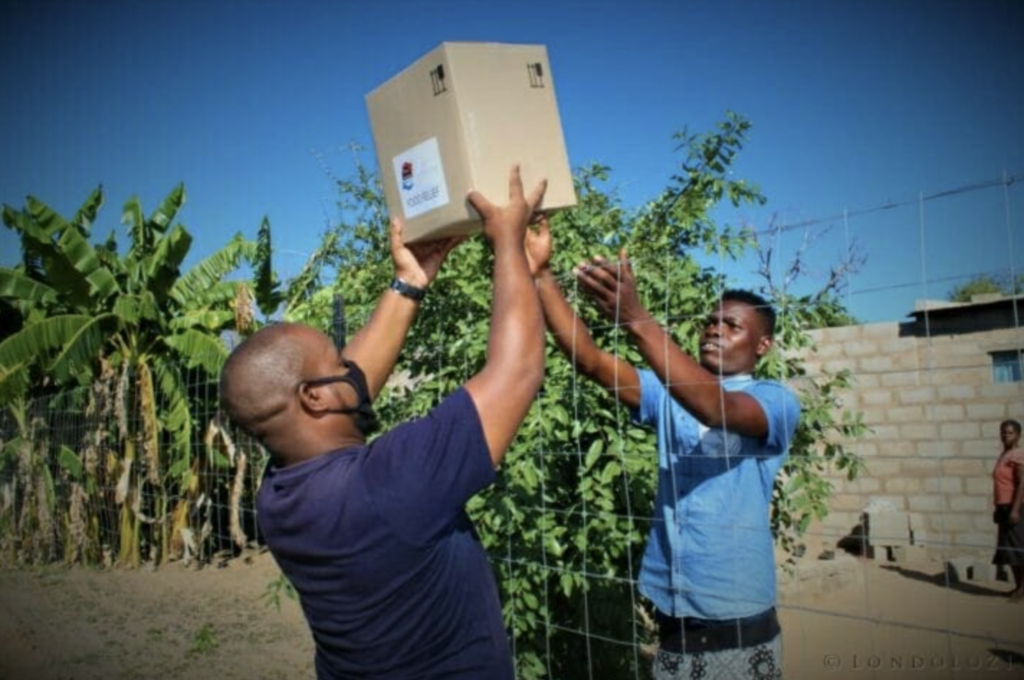
7.In what way was the pandemic a catalyst for you, personally and professionally?
It has definitely been a catalyst professionally. I am even more determined to do what GWF has as its mission, this pandemic has been a giant magnifying glass on inequality and we have so much to do. We had been working hard to transfer leadership within the organisation through improved systems and processes, as well as nurturing local management. During the lockdown, this pandemic took all of us out of operations for a while and gave us, me specifically, the option to not “fully”step back in. By not doing that I have seen the most amazing growth within the organisation with shining stars emerging. It has then allowed me to really reflect on how far we have grown and also to start to reimagine the GWF for the next three to five years.
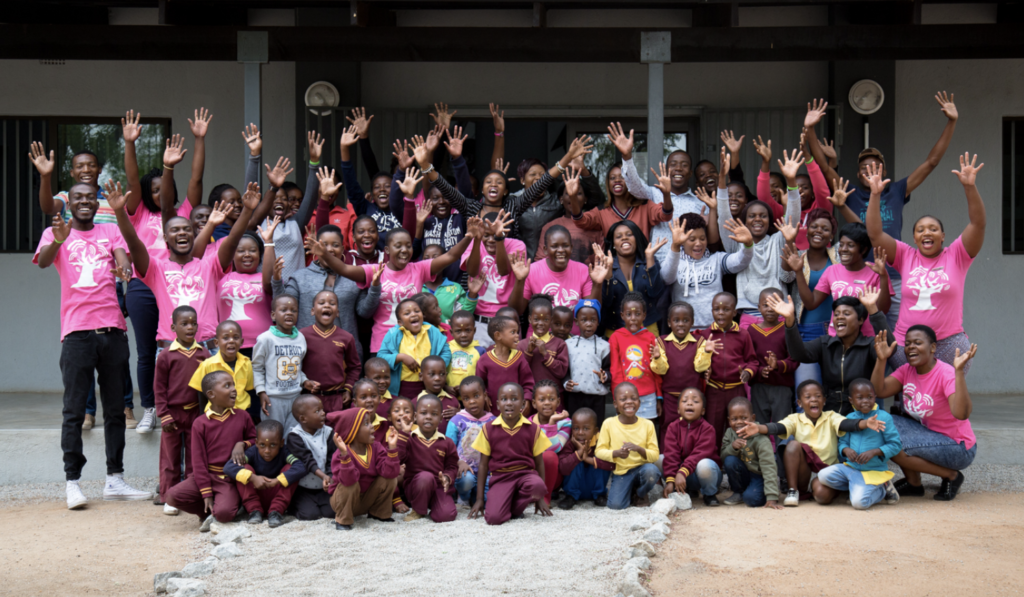
8.What characteristic or leadership quality of yours helped you during this time, and was there anything about your approach that was a hindrance?
I think as a leader I am always approachable and open to people’s ideas. I’m also quick to facilitate the implementation of good ideas once they’re decided. I’m often heard saying, “we move at dawn.” This helped the team to feel that we were still moving forward when sometimes the world felt like it was standing still. I am supportive as a leader and really care for the team. I have also been positive and consistent in this time, and this has meant we have come through the uncertainty focused and still on mission.
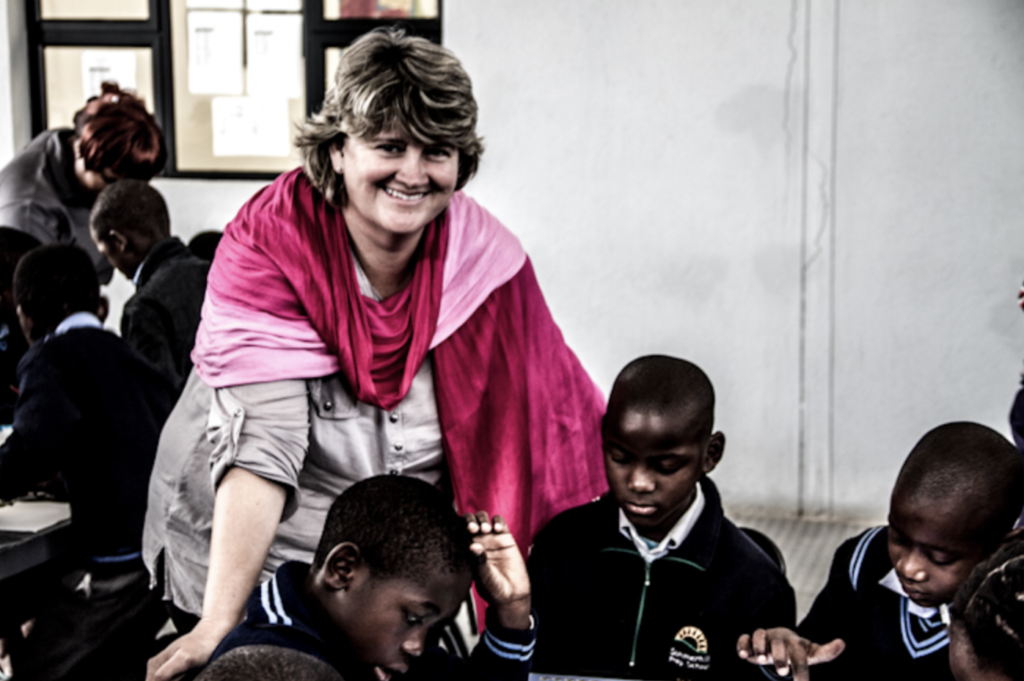
9.What was the biggest “aha” moment you had during the initial crisis phase?
“We have got this.” It is hard and uncertain but we can always make a plan. I realised that we don’t have to fix everything in the first week, but slowly and together we can regroup, reimagine and evolve our programmes. As long as we keep moving forward as team, we have got this. And as my grandpa always said – we just have to “keep up the Good Work!”
While we navigate ourselves through this pandemic we have to say a huge thank you to you! Even though many of you are ten thousand kilometres away, your ongoing generosity and kindness has helped the Good Work Foundation keep going.
Join our global tribe:
As a Londolozi Ripple Fund supporter you join a global tribe of people who hold the belief that the restoration of the planet can only come out of a profound shift in human consciousness.
We have established a Londolozi Ripple Fund Impact site where you can follow regular updates of projects and donations as they unfold.
For more information or if you would like to make a donation and start your own ripple effect, please reach out to us on ripple@londolozi.co.za

